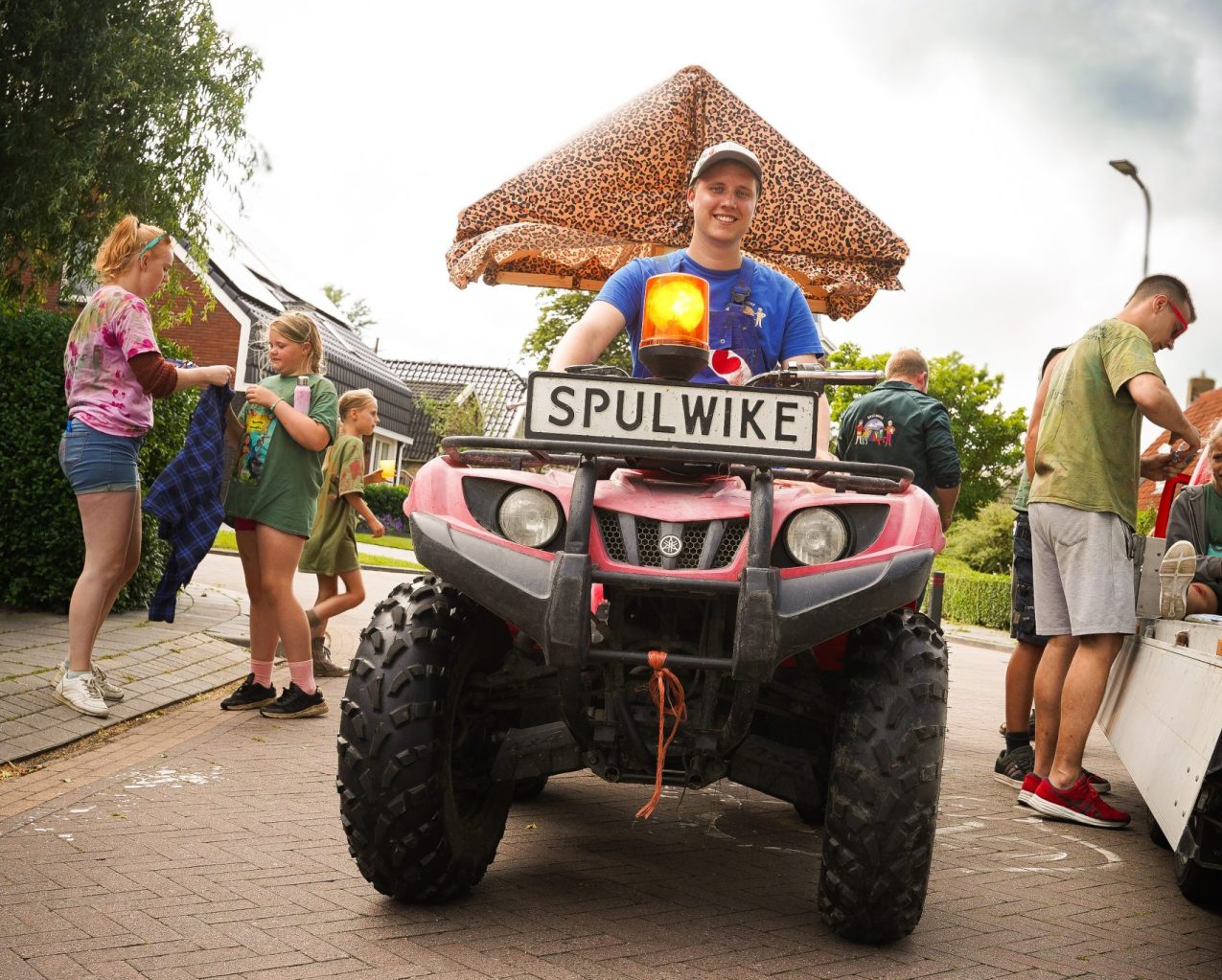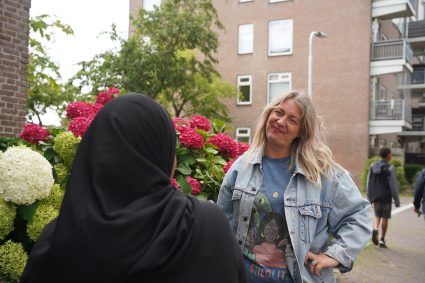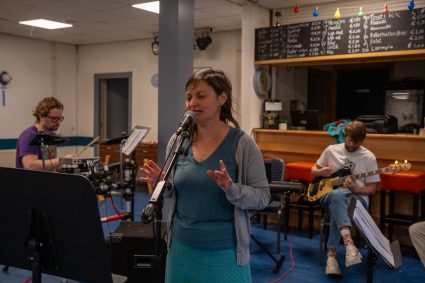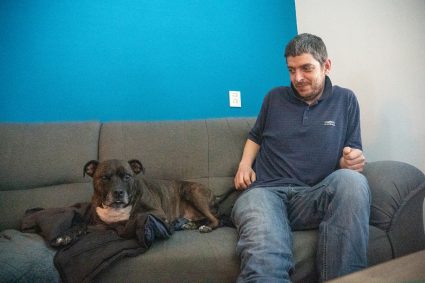Volunteer reciprocity
On the sports field on the outskirts of Easterein, a few hundred children sit spellbound watching a group of volunteers opening the second day of the Spulwike in disguise. The children yell the yell in chorus before jumping up and following the volunteers into the village in small groups. It's a cosy affair, that's clear!
In the village, we meet Jacob. Fully in appropriate attire and covered in paint splatters, he does have time for this interview. "The paint splatters are from yesterday's paint fight," he mentions. "All the children are also covered in them. At the end of the week, we do it again so that everyone looks nice and coloured." As we walk around the village, we see groups of children playing games everywhere. "The idea is to keep the children busy as simply as possible," Jacob explains. "Most games consist of materials that don't cost much; ring toss with pawns and bicycle tyres, butter cheese and eggs with PVC pipes and wooden dice that have lasted for years. We make musical instruments out of yoghurt buckets and beer caps. It all doesn't have to be so difficult. The kids always have fun."
100 days without volunteers, what do you think happens then?
"Without volunteers, the Spulwike would not exist. This event has been around since 1972 and has been organised and run by volunteers for generations. Many of the volunteers themselves participated as children. So without volunteers, no Spulwike.And not without the sponsors either. Not only for the finances but also for the deployment of resources, such as a shovel. This is done selflessly."
Spulwike is a collaboration of three villages: Easterlittens, Easterwierum and Weidum. Children from the whole area are of course welcome. Jacob is the new chairman of Easterlittens. So to speak, he ran with the old chairman for one more year to get everything right. Now it's his turn. Organising the Spulwike starts as early as January. Some 650 children from the region come to participate and some 125 facilitators are active. Those facilitators are all volunteers between 18 and 35 years old. Some with a background in pedagogical work, but mainly many people who themselves participated in the Spulwike as children. It is a kind of reciprocity; the children who participated first are now facilitators. They understand exactly the feeling of the Spulwike and go out of their way to give the children this.
"That is exactly the intention," Jacob points out; the supervisors are all eighteen plus. They all have an eye for the children and understand that these four days come first. They themselves are rewarded with a party in the evening, but this should not go too crazy. After all, you have to be there in the morning again 100% for the children."
The companions we meet are having an awful lot of fun, it is very clear. There is noise and merriment everywhere. The children are raving about the games and in between, a bar drives around with a lemonade tap for the children and coffee for the volunteers. The village is buzzing and the merriment is contagious. Older people sit in their front gardens happily watching the children, so they too participate a bit.
"The whole week revolves around the children. All the children. So the groups are put together in advance by volunteers and they also make matches in the process. For instance, there is a group of children with lactose intolerance who then also have a supervisor with lactose intolerance. Children who need extra attention are also given a matching supervisor who has experience with the target group. Then everyone can participate."
We don't really get around to the question 'what happens when everyone volunteers for four hours'. Jacob has his job to do and we enjoy the reciprocity of generations of celebration and volunteering for a while longer.



